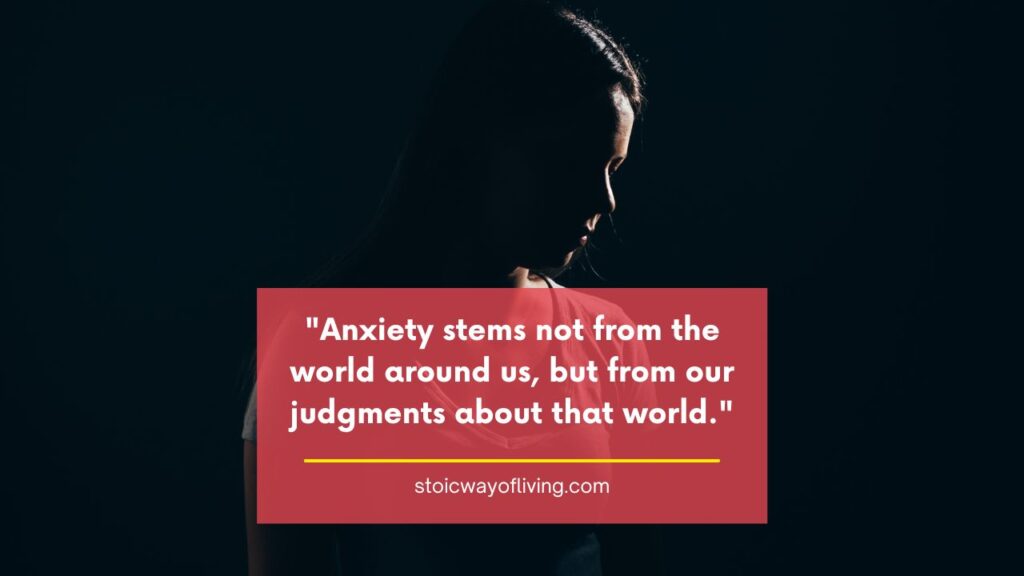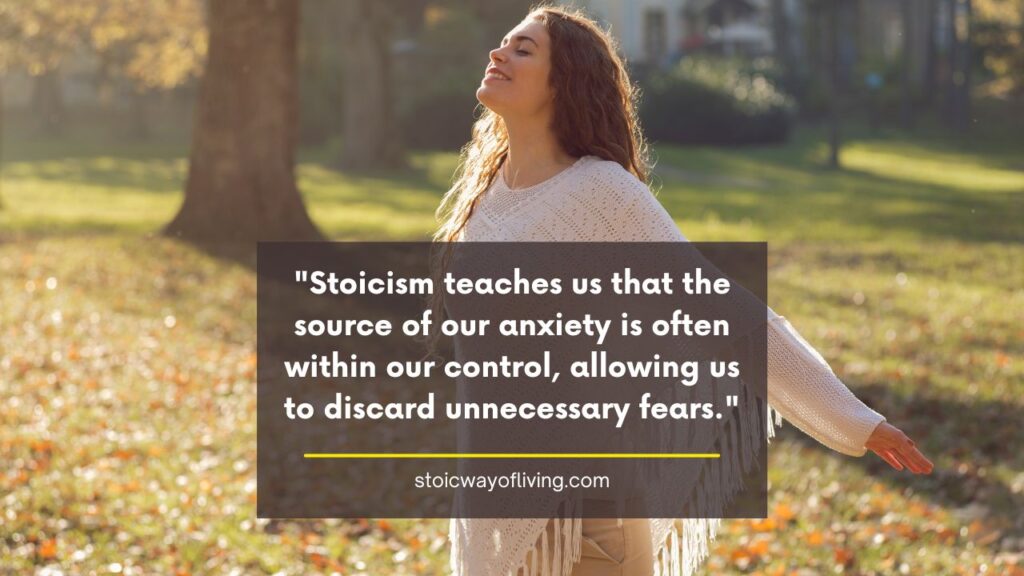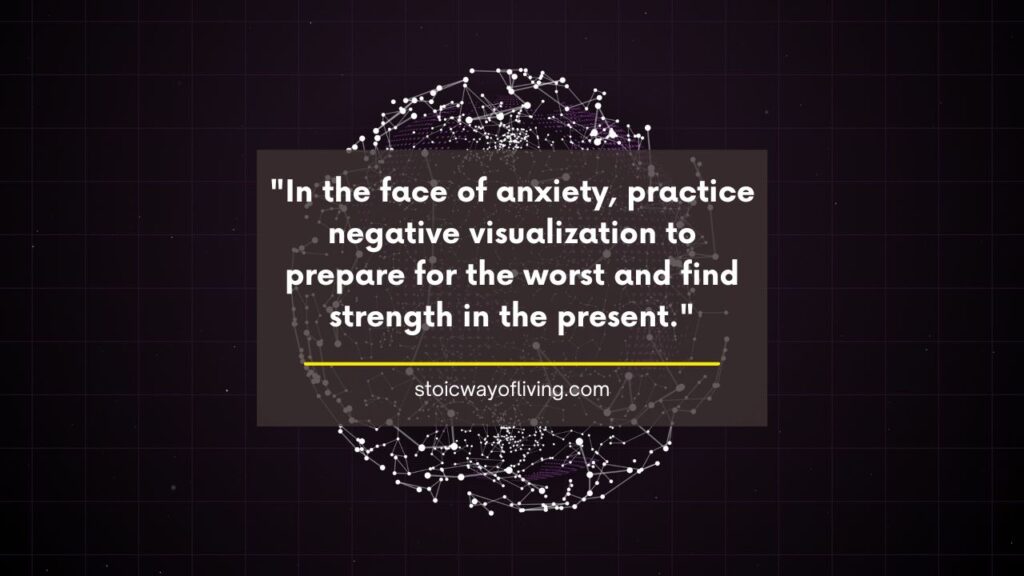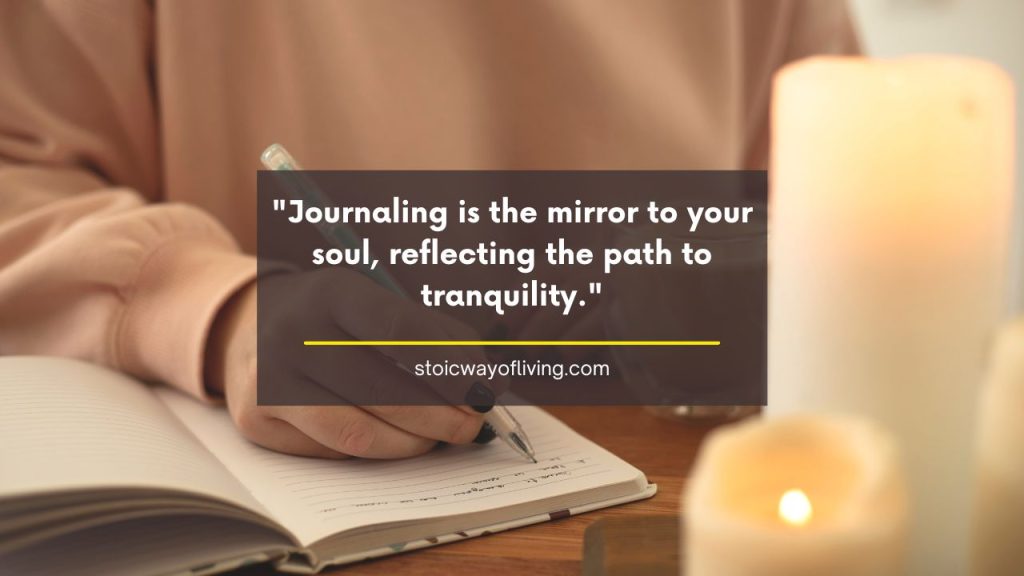Managing anxiety using stoic practices is possible. Anxiety is prevalent in the modern era due to constant exposure to news about pandemics and economic instability.
Ancient Stoic philosophers like Zeno, Epictetus, Seneca, and Marcus Aurelius developed practical strategies to maintain mental resilience in the face of challenges.
This article explores how Stoic practices can help manage anxiety by focusing on what is within our control and adopting a mindset of acceptance and virtue.
Understanding Anxiety

Anxiety is a pervasive feeling of worry or unease that can significantly impact daily life.
According to the Anxiety and Depression Association of America, 65 million people in the U.S. alone struggle with some form of anxiety.
Pandemics have not reduced anxiety; instead, they have highlighted that anxiety often stems from within despite alleviating traditional stressors like commuting.
Seneca, a Stoic philosopher, observed, “We suffer more from imagination than reality.” This suggests that our perceptions and judgments about events play a significant role in generating anxiety.
Recognizing that anxiety is often self-created allows us to begin addressing it more effectively.
Managing Anxiety with Stoic Practices

Stoicism is an ancient Greek philosophy emphasizing self-control, rationality, and virtue as the keys to a fulfilling life. Core principles include:
- Focusing on what we can control.
- Accepting what we cannot.
- Living by nature and reason.
Marcus Aurelius, a Roman emperor, used Stoicism to navigate the pressures of ruling an empire during the war, plague, and personal loss.
Stoicism provides practical wisdom for managing modern anxiety and cultivating inner peace and resilience.
Dichotomy of Control

Epictetus taught us to focus only on what we can control—our thoughts, actions, and reactions.
By letting go of concerns over things outside our control, such as other people’s opinions or uncontrollable events, we can reduce anxiety.
Practicing this involves identifying stressors and consciously categorizing them based on their controllability.
Mindfulness and Present Moment Awareness
The Stoics emphasized living in the present moment.
Marcus Aurelius often reflected on the importance of focusing on the now rather than being consumed by past regrets or future worries.
Mindfulness techniques like deep breathing and grounding exercises can help maintain present-moment awareness and reduce anxiety.
Negative Visualization

Premeditatio malorum, or negative visualization, involves contemplating worst-case scenarios to reduce fear of the unknown.
By imagining potential challenges, we prepare ourselves mentally, which can make real difficulties less daunting when they arise.
Virtuous Action

The Stoics believed in living a life of virtue—practicing courage, wisdom, temperance, and justice.
Acting virtuously can build resilience and provide a sense of purpose, which helps mitigate anxiety.
Journaling and Reflection

Daily journaling can help process thoughts and emotions, making it easier to manage anxiety.
Reflecting on what went well and what could be improved and identifying anxious thoughts can provide clarity and reduce mental clutter.
The View from Above

Marcus Aurelius used viewing life from a higher perspective to gain clarity and reduce the significance of personal problems.
This practice involves imagining oneself looking down on life from above, seeing the bigger picture, and understanding the relative insignificance of individual worries.
Seek Professional Help
While Stoic practices are beneficial, they can be complemented by professional therapy or counseling.
Professional help can provide additional support and techniques tailored to individual needs.
See Also: Elevate Your Life with These Techniques to Control Anger!
Real-Life Applications and Success Stories

Stoic practices have been successfully applied by many throughout history.
For example, Admiral James Stockdale, a prisoner of war in Vietnam, used Stoicism to endure seven years of torture and isolation.
He credited his survival to the principles he learned from Epictetus, focusing on what he could control and maintaining his internal freedom despite external circumstances.
Similarly, modern professionals like athletes and executives use Stoic techniques to manage performance anxiety and stress.
Incorporating Stoicism into daily routines—such as starting the day with mindfulness exercises, using negative visualization before important events, and reflecting through journaling—can significantly reduce anxiety.
These practices help individuals build resilience and find peace amidst life’s challenges.
Conclusion
Stoicism offers a powerful toolkit for managing anxiety.
We can cultivate a resilient mindset by understanding anxiety and applying Stoic principles such as the dichotomy of control, mindfulness, negative visualization, virtuous action, and reflection.
These practices encourage us to focus on what we can control, accept what we cannot, and live virtuously. As we navigate the complexities of modern life, Stoicism provides timeless wisdom that promotes inner peace and well-being.
Embracing these principles can transform our approach to anxiety, helping us lead more balanced and fulfilling lives.
If you’re interested in exploring how to manage anxiety further through modern scientific insights, consider reading “Rewire Your Anxious Brain” by Catherine M. Pittman and Elizabeth M. Karle. It’s available on Amazon; Click Here!


